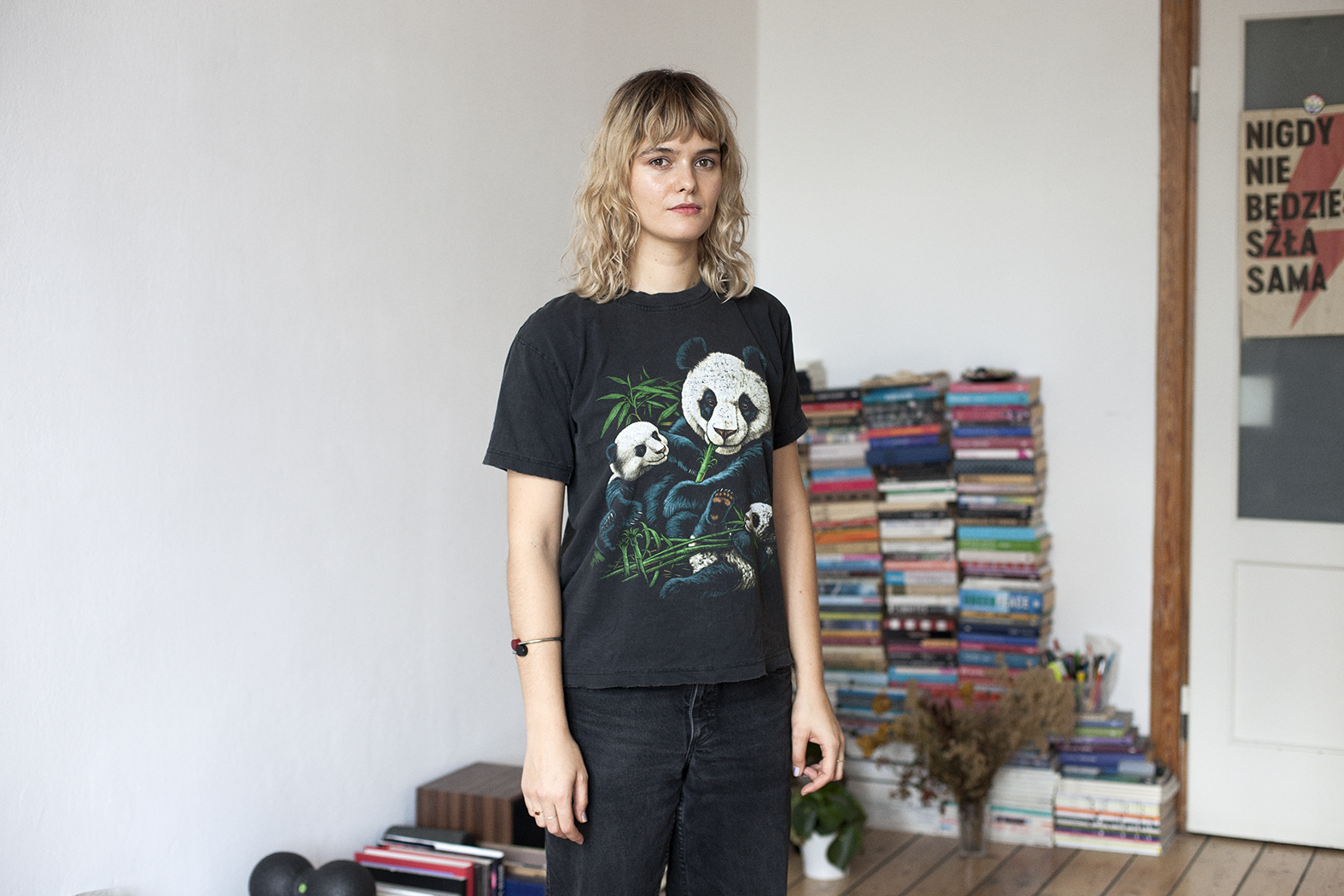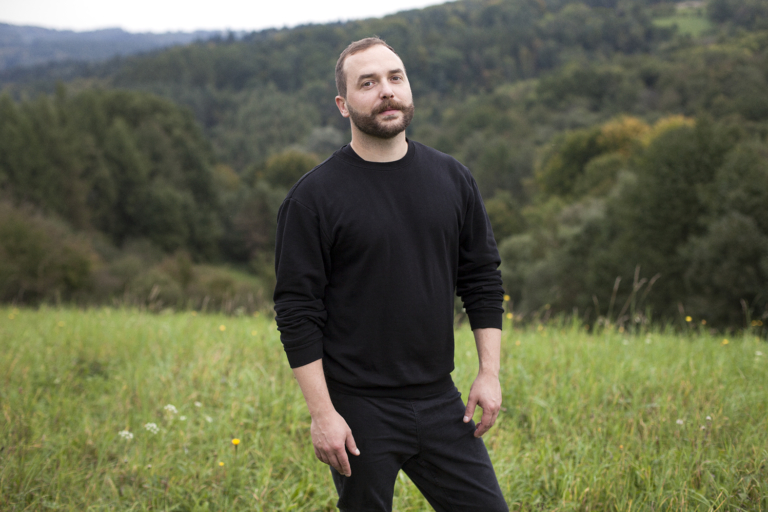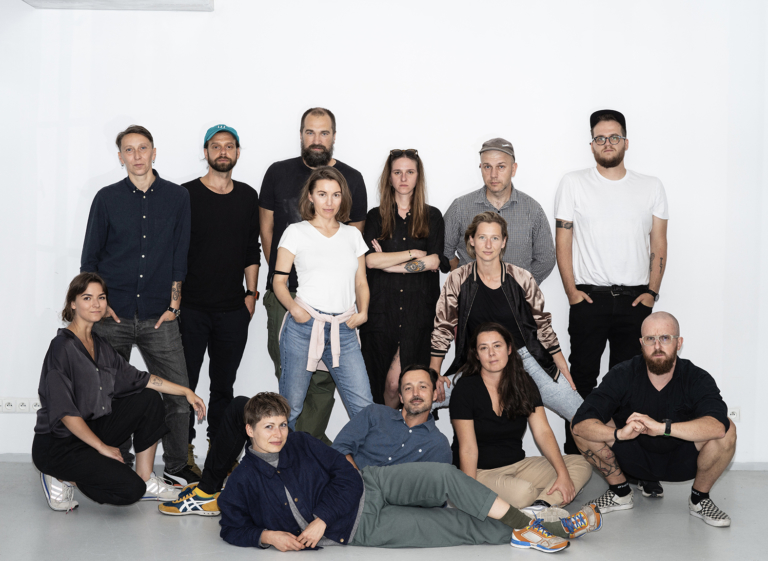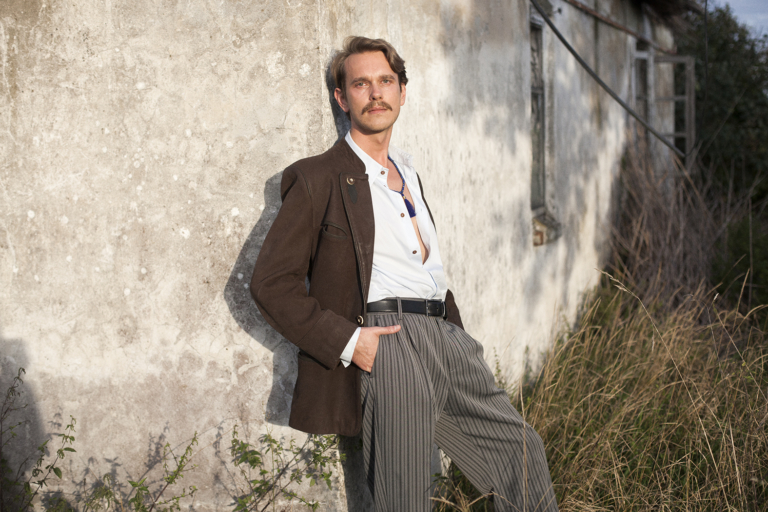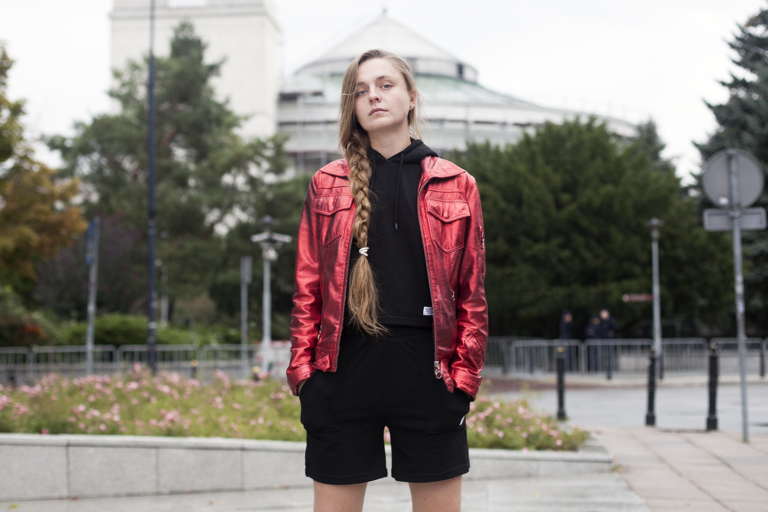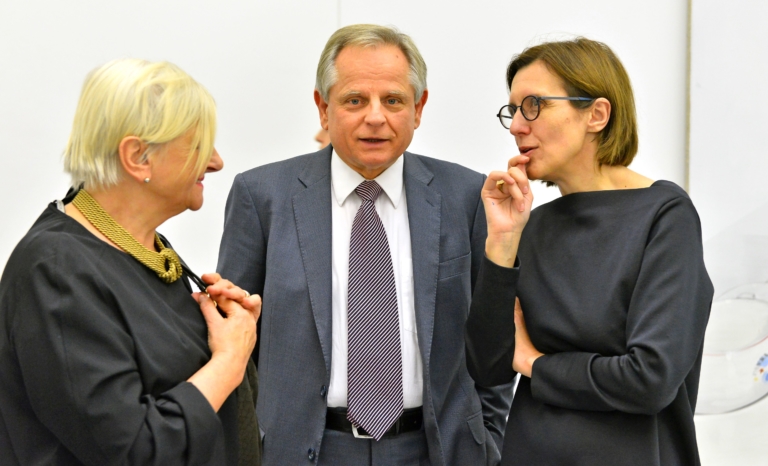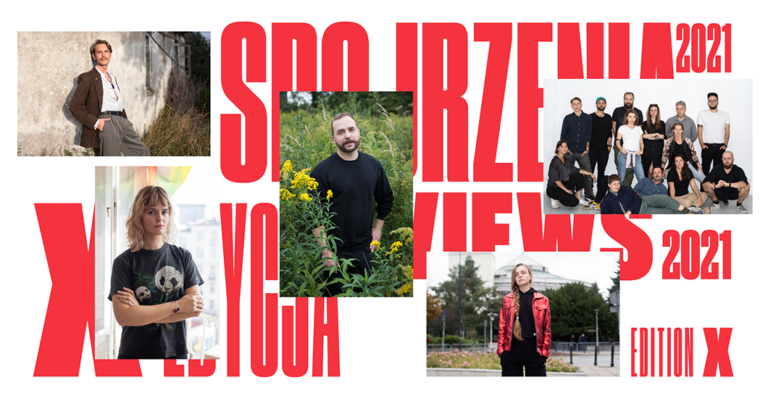No. 33
You are the Net, and it is you
Ewa Drygalska talks with Weronika Wysocka
Ewa Drygalska: You treat social media as material, a medium you work with. Media researcher Neil Postman wrote that the press, computer or television are not simple information machines. They are the metaphors by which we make sense of our reality. They classify the world for us, sequencing it, forming it, enlarging it or shrinking it. How do social media classify the world for us, what shape do they give it?
Weronika Wysocka: They classify and shape or polarise and amplify extremes. Because you’ve woven your own web, you decide who you follow, what you share (and the algorithms amplify this), you unwittingly contribute to limiting your perspective (while doing the work for the tech corporations). The reference point for the production of meaning through social media is always you. Your feed represents you, and your representation shapes you. You are the Net, and it is you It’s much easier to distance yourself from the messages coming from the TV or radio than from those on your feed. These zones used to be separate; today, they are not. Social media has made everything always about you, your attitude to something, a comment, an action. From this relationship comes engagement and a sense of empowerment, a sense of community, but also frustration and confusion.
What do you find frustrating?
My feed represents the sum total of unsolvable problems: conflict, occupation, violence, the conservative turn. It is the shape of the virtual reality in which my friends and I live. And while we may exemplify the awakening of consciousness and activism, it is this bleak shape of reality that we face every day (for which we are also responsible, because we create it, because we are it) that makes us lose our dreams. We are losing our visionary nature because we have resigned ourselves to a vision of dystopia. And yet fantasy and the vision of something better are the driving force that makes life worth living. I try to work on this kind of thinking so that I don’t burn myself out and to take care of my creative space.
Perhaps this is because, as many scholars have written, like Mark Fisher in Capitalist Realism published in Polish last year, or Franco Berardi in his book Futurability: The Age of Impotence and the Horizon of Possibility, which unfortunately has not been translated into Polish, we now live in an eternal present, frozen in the now.
I am afraid of tomorrow, of the coming tragedies, but I don’t want it to take away my power to do things and my joy of living and creating. I recently came across texts and lectures by Donella H. Meadows, which, after replacing the contexts of the 1980s with contemporary ones, allowed me to regain my strength and get out of the hole — the burnout called ‘the present’. Meadows wrote that ‘The goal of foreseeing the future exactly and preparing for it perfectly is unrealizable. […] We can never fully understand our world, not in the way our reductionistic science has led us to expect. Our science itself, from quantum theory to the mathematics of chaos, leads us into irreducible uncertainty. […] We can’t find a proper, sustainable relationship to nature, each other, or the institutions we create, if we try to do it from the role of omniscient conqueror’. Her texts describing the most and least effective types of interventions in the system gave me the perspective I needed — an acceptance of the state of uncertainty — reminding me that one never fights for a better tomorrow, only for the repeatability of actions whose hard-to-predict consequences will reveal themselves in unpredictable time.
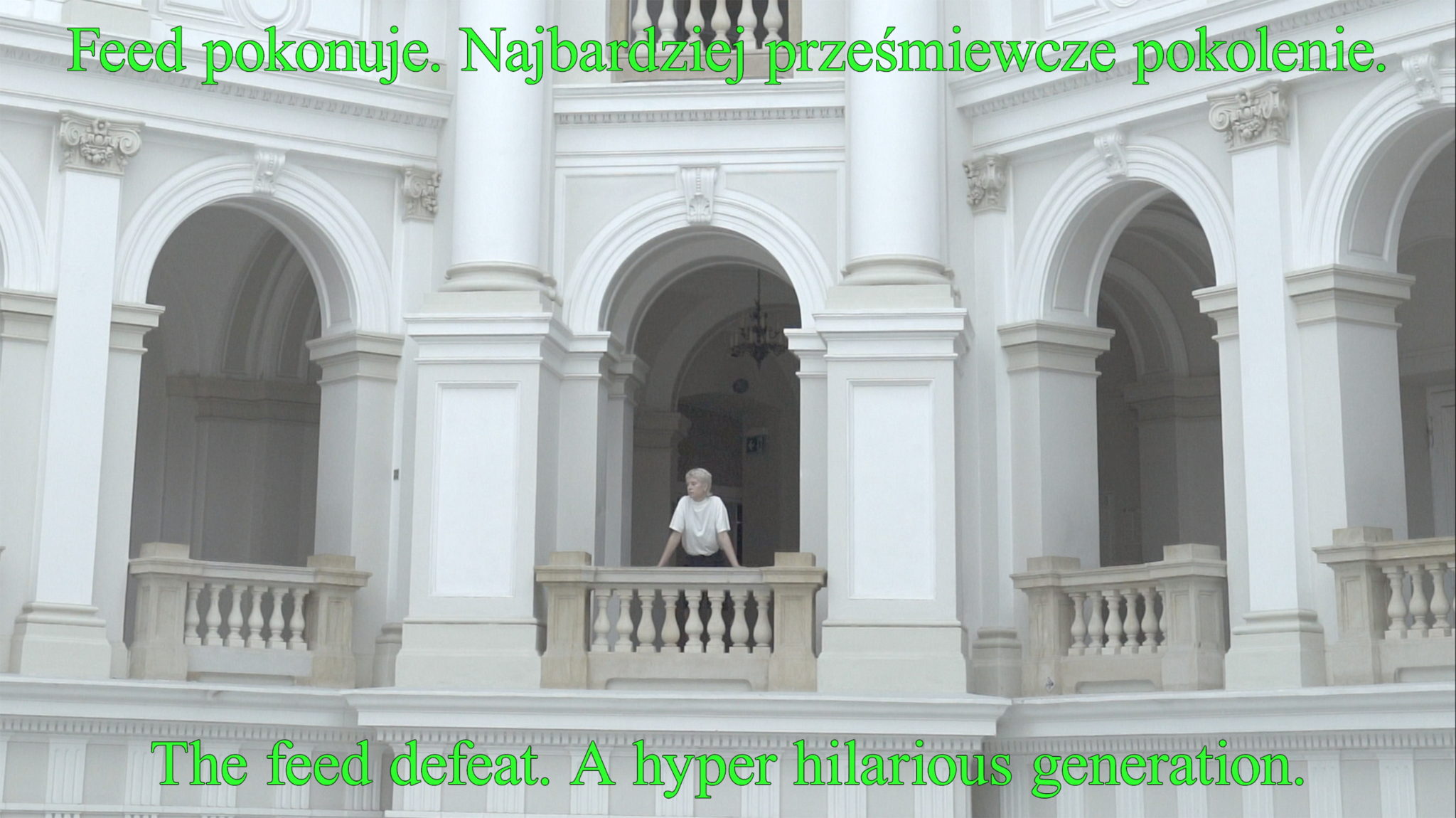
‘We know more about each other than we would like to have in common’ — these are the last words of the manifesto accompanying the User X project. How do you understand this? Jean Baudrillard, perhaps the most controversial of media philosophers, wrote as early as the 1980s about a kind of ecstasy of communication, of producing signs and meanings. The author insists that the content of communication is completely irrelevant: the only thing that is communicated is the communication itself.
I wrote the manifesto before the project was conceived. It was an image of the project, but it also defined who the user is, what they experience, what they face, what shapes them. In creating the manifesto, I drew on my own observations and the experiences of my friends. In 2019, the discussion about the impact of social media on mental health and relationships was just beginning, and although today many studies confirm its negative impact, digital magnates still do not take responsibility, hiding behind the users’ free will. And while there is a conscious rejection of social media participation among the millennials, the generation who experienced the world before social media, this is practically impossible for the generation of digital natives, the people innate to the hybrid world. In 2019, Instagram was still a lifestyle medium, and we were annoyed about ‘exhibitionism’ or the ‘narcissism’ that flows from it. Today, it’s a business platform and most profiles are professionalised in some way. Lately I have the impression that by doing this we are also ‘professionalising’ ourselves IRL (in real life), and certainly starting to see others in this way.
The concept of the user has a fascinating history. In the 1980s, when it was born, it was a working concept needed in a newly emerging area at the intersection of science and engineering: Human Computer Interaction. Over time, it has come to define almost all the roles we enter into with technology. The idea of the subject-user points to the role of the human being in a relationship with technology and at the same time establishes this relationship. The user uses technology to perform specific tasks that transform the user’s ability to perceive and act in various ways. Being human, we are also users. So who or what is the eponymous user X?
X is an unknown, meaning it can be anyone and everyone. User X — like patient X — is the subject of research and observation, and conclusions drawn from it along with self-diagnosis will help to diagnose users Y and Z. They are suspended between the real world and the virtual world and their problems stem from this. User X is also, of course, UX, user experience — the entirety of impressions they experience when using an interface, software or technology. User X checked to see if and where the assumed experience passes by the real one and reported their thoughts in episodes on Zachęta’s Instagram. Each episode dealt with a different topic, such as the fear of missing out on (FOMO) or jealousy.
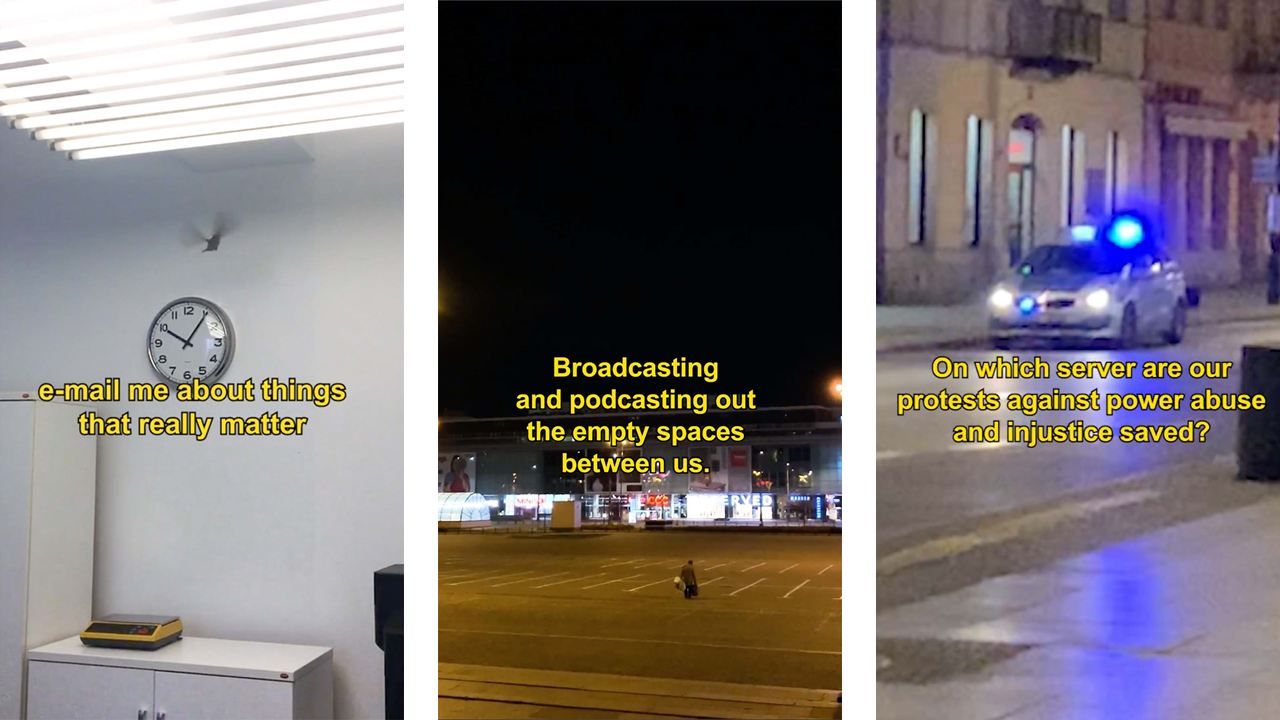
How should User X affect the viewer? What reaction do you assume? What is your goal?
User X is still an open project, there have been two seasons so far, there will definitely be more, although I’m not sure if they will also be published on social media. I wanted to draw attention to the disorders that arise from the experience of social media platforms and influence awareness of the processes of manipulation of us, those beyond our control, but which have a real impact on the lives of individuals and the masses. Using poetic language, finding metaphors for the first ever such close connection between people and technology, I wanted to test my theories and observations. I dreamed of people responding directly to each video. They let us know if they feel, see and live the same way, and if not, why not. The format of the Instagram Story allowed me to do this.
I was curious about what you said recently in another interview: ‘Most of my friends feel more at ease writing than talking. Many authors, such as Jacek Dukaj, say the opposite: technology is making writing disappear in its classical form, and with it our subjectivity. What are the consequences of this process, the short-term ones that we experience here and now, and the long-term ones? I am reminded of Walter Ong who, in his book Orality and Literacy, described the fundamental differences between oral cultures and those based on writing. In illiterate cultures, communication was based on repetition, the use of formulas, it was full of expressive means instead of precise concepts, it did not create the possibility of creating distance, it was characterised by the focus on the present moment, the domination of situational thinking over abstract thinking. The advent of the written word turned this upside down, we began to think differently about ourselves.
Ong’s assumptions have already been supported by research on study groups in Poland. Some time ago I read a book by Paulina Banaszkiewicz, Barbara Gawda and Kalina Kosacka, Psychologia emocji pokolenia digital natives [Psychology of Emotions of the Digital Natives Generation], which shows how the difference of digital generations compared to previous ones is revealed in the experience of emotions, their structure and emotional lexis. Studies show the transformation from abstract to situational thinking through the example of language used to describe basic emotions such as love, anger, sadness, etc., while highlighting that generations do not differ in verbal intelligence. The most generationally diverse terms are those used for love. In the perception of generation X and the baby boomers, love is defined using metaphorical expressions such as ‘fluttering of the heart’, ‘head in the clouds’, ‘symbiosis’, which indicates cognitive distance and an attempt to grasp love from a certain perspective. In contrast, digital natives perceive love through specific people, situations, things and events — Kasia, cinema, bed, betrayal, work — which is consistent with the characteristics of this generation, showing a tendency towards clarity, immediacy or spontaneity. Digital natives use expressive, concrete language that does not require distance or cognitive perspective.
What effects will the dominance of situational thinking have on society? I am not sure I would judge it unequivocally negatively. Thanks to the development of science and psychology, we are getting better at naming our states, we do not live in the illusion of metaphors. Because there is more responsibility for words and declarations that deal with the concrete rather than the metaphorical. Or perhaps abstract thinking is not disappearing, but changing, adapting and finding its place in the progressive fusion of language and image? Perhaps it is shallower, but less toxic?
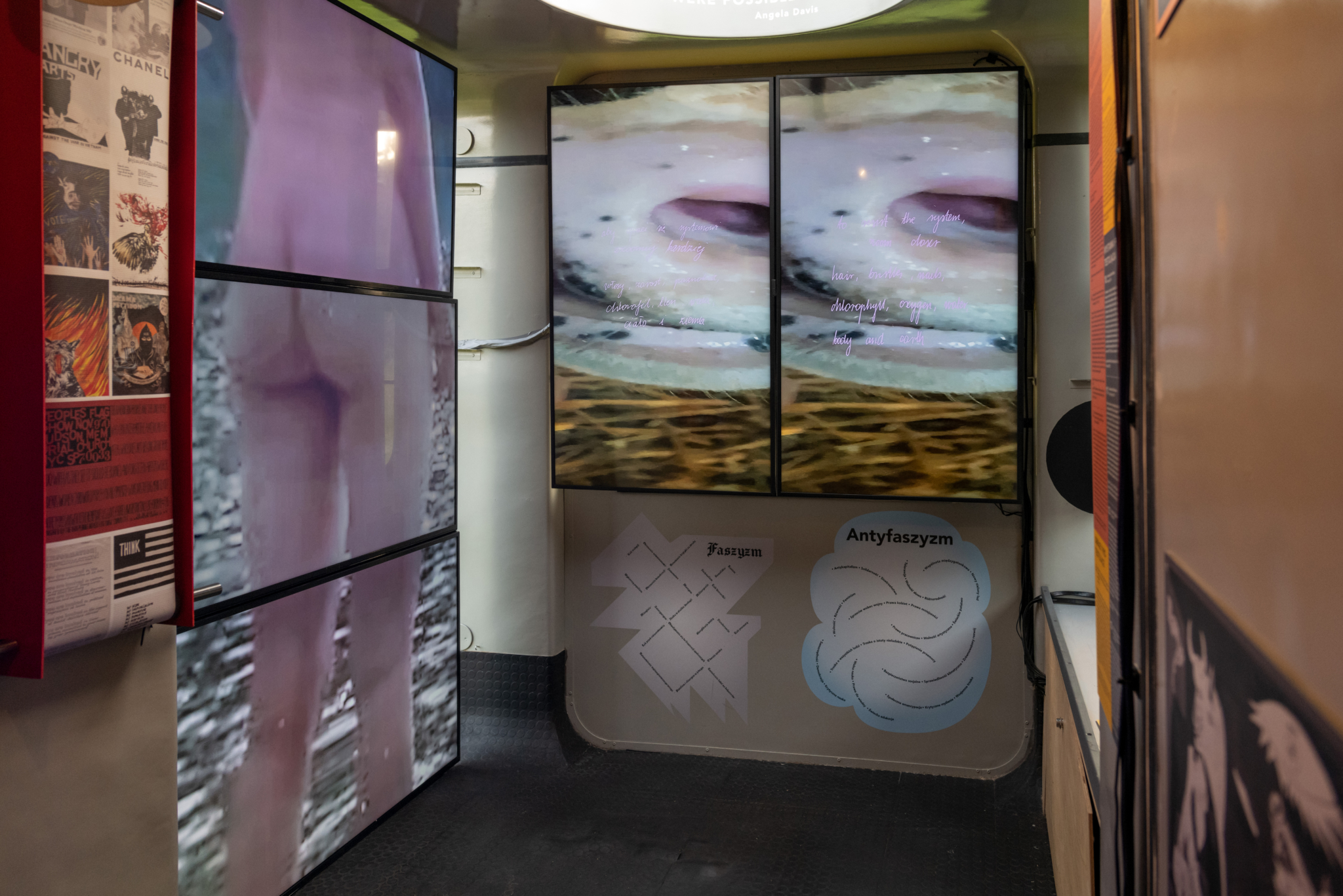
I get the impression that the norms of social coexistence are also changing. I know many people with whom I have to make a prior appointment even for a phone call. And not so long ago, it was quite normal to drop in for tea or coffee without notice, just being in the neighbourhood.
I think this is one of the effects of moving life online. We certainly lose basic social skills, such as establishing direct relationships with others. In addition, being online every day takes up so much of our time that we don’t have time to visit in real life. Capitalism and its accompanying imperative for productivity have made leisure time very precious. We have little of it and we have to carve it out for ourselves. But it is worth it. Although the pandemic is terrible, the timing of the first lockdown was very fortunate for me. I moved to the countryside and worked there. Living outside the city, I was able to limit my expenses and survive on a few hundred zloty a month. I slowed down. My social life also revived: friends would come to visit, and we would spend a few days together, cooking together and getting a better understanding of who we really were. Reality took the lead, I only opened the window with the stream of information once in a while, like we used to turn on the TV. I felt calm and safe despite the widespread uncertainty and subsequent reports of fatalities from the virus.
Theorist Wendy Chun wrote that silence is now impossible not because of the implosion of the social in the media, but rather because of the implosion of the media in the social, arguing well why deactivation will not be an appropriate strategy in a world where our social lives are so deeply mediated by platforms.
I find it easier to imagine the end of the world than the end of social media. Theoretically, you can get out of the system, live alongside it, ignoring it, but that won’t make it go away, that doesn’t mean that it won’t grow, increasingly disrupting the boundaries of experience. An interesting example of the irreversible loss of freedom of choice to participate in social media is the anarchist community. The anti-capitalist attitude of my friends in these circles, who are around 40 years old, manifests itself, among other things, in a conscious rejection of media 2.0: they don’t use smartphones because they don’t want to be tracked, and they have their email inboxes on secure, eco-friendly servers. Meanwhile, the younger generation of anarchists is spreading anti-capitalist ideas using their reach on social media platforms. On the one hand, losing integrity with one’s professed values can be seen as another manifestation of capitalist realism, and on the other, a question comes to mind: What is more effective and has a stronger impact on shaping consciousness and reality?
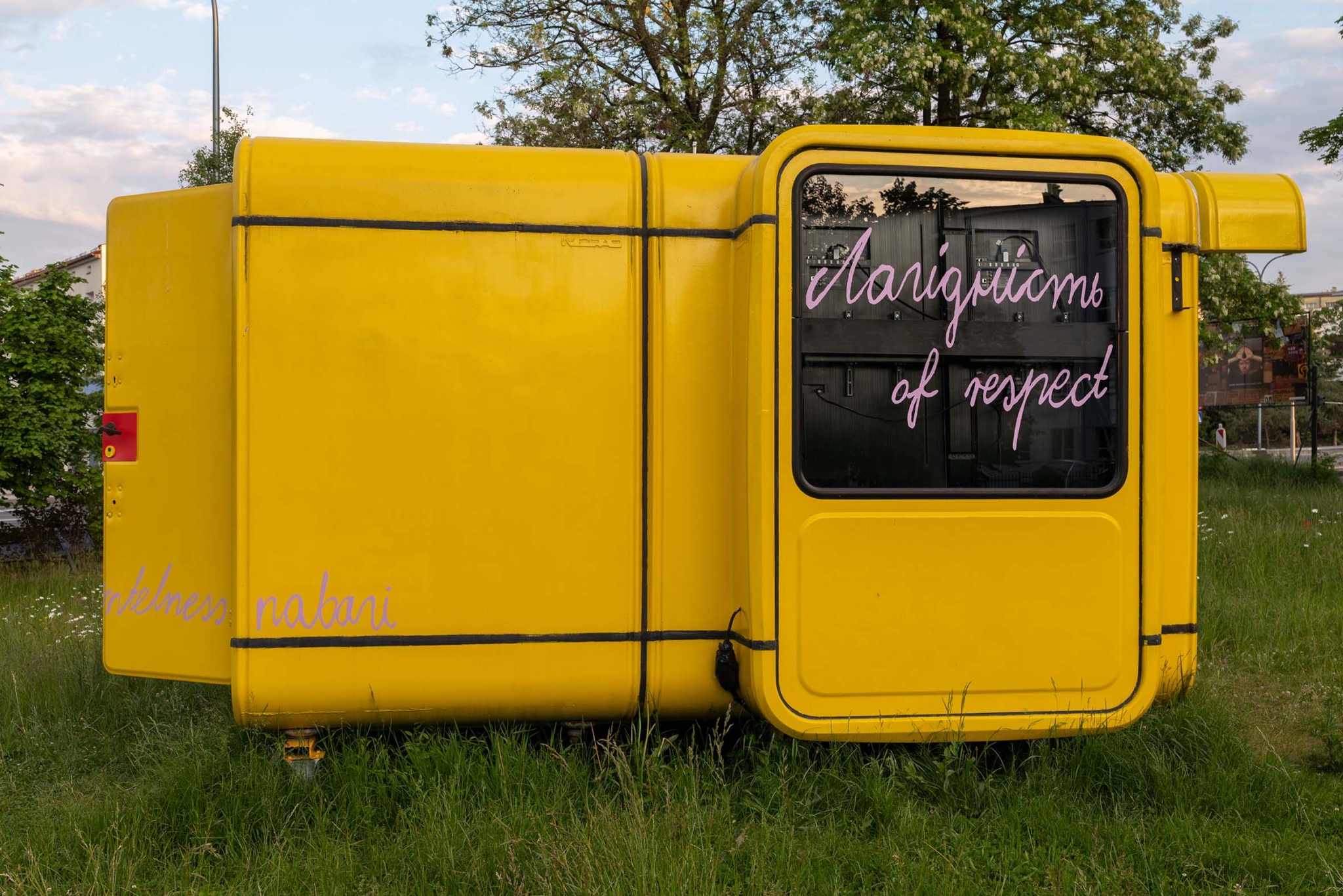
Ewa Drygalska, Ph.D. — director of communication with audiences in the Emigration Museum in Gdynia, an expert on new technologies in museums and cultural institutions, lecturer at the Polish-Japanese Academy of Information Technology at the Faculty of New Media Art. She writes about these issues, among others, in the pages of Dwutygodnik.

